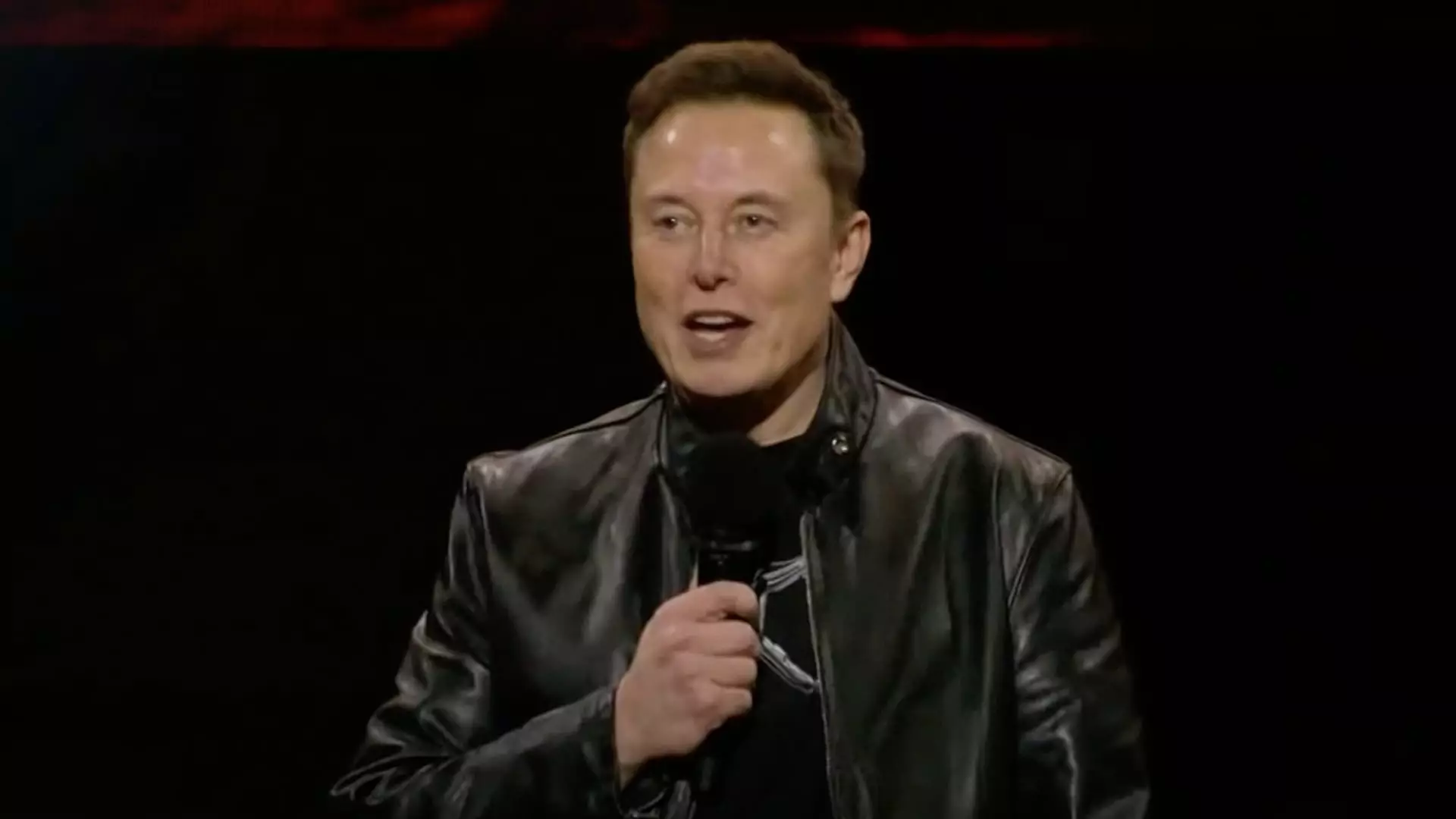The intersection of technology, entertainment, and law is often fraught with tension, as evidenced by the recent lawsuit involving Elon Musk, Tesla, and Warner Brothers Discovery. At the heart of this case is the allegation that Musk and the companies in question misappropriated an iconic still image from the critically acclaimed film *Blade Runner 2049* to promote Tesla’s new robotaxi concept, the Cybercab. This lawsuit, filed by Alcon Entertainment, the film’s producer, sheds light on the complexities surrounding artificial intelligence and copyright law, as well as the potential ramifications of celebrity influence in business ventures.
The narrative began with Musk and his companies seeking permission to use a specific image during a promotional event. This request was categorically denied by Alcon, which raised questions about the appropriateness of using such a prominent piece of visual culture without consent. Despite the rejection, the defendants allegedly proceeded to display a computer-generated image that mimicked the original, presenting it to an audience during a high-profile event. This act is not merely a breach of artistic integrity; it raises substantial legal questions regarding the nature of copyright infringement in the age of artificial intelligence.
According to the lawsuit, the actions of Musk and his associated parties reflect “massive economic theft.” In an era when images can easily be created and manipulated using AI technologies, the line between inspiration and infringement becomes increasingly blurred—something that this case highlights. The suit claims that the usage of an AI-generated image, which appeared for 11 seconds during the Cybercab presentation, misled the audience and potentially harmed Alcon’s brand.
As the lawsuit progresses, it emphasizes the importance of consent and the severity of unauthorized representation, particularly in the context of branded entertainment. Alcon’s complaint also includes allegations of false endorsement, suggesting that there was an implied association between *Blade Runner 2049* and Tesla’s Cybercab, which was not sanctioned by the film’s producers.
The broader implications of this case extend beyond the confines of intellectual property law. Given Elon Musk’s high-profile status and his politically charged public persona, the lawsuit raises a salient point regarding brand identity and association. Alcon’s concern about the association with Musk—who has been known for his controversial statements and unpredictable behavior—underscores the fragility of brand partnerships in today’s volatile social and political climate.
Should the lawsuit succeed, it would set a precedent regarding the limitations of AI-generated content in advertising and promotional efforts, which is particularly pertinent as technology continues to evolve. It poses pivotal questions: How do companies navigate the waters of creativity without infringing on original works, and what risks do they undertake when aligning themselves with public figures who may polarize audiences?
At its core, this legal battle signifies a broader discussion about corporate ethics and responsibilities. In a world where technological innovation often outpaces regulatory frameworks, it becomes imperative for companies to establish transparent guidelines regarding AI usage and copyright adherence. The actions of Tesla and its representatives may reflect a hurried eagerness to present cutting-edge technology, but they also highlight a systemic failure to respect established intellectual property rights.
As individuals and companies become increasingly reliant on AI for content creation, the deluge of ethical dilemmas will likely continue to rise. This case serves not only as a cautionary tale for creating visual content in tech promotions but also illustrates the importance of upholding moral standards in business conduct—an aspect that is often overshadowed by the rapid pace of innovation.
The Tesla and Alcon lawsuit exemplifies the challenges of modern business practices, particularly at the convergence of AI technology, intellectual property rights, and the influential power of public figures. As this legal dispute unfolds, it reinforces the imperative for companies to tread carefully in their promotional strategies, ensuring they remain compliant with legal standards while navigating the complexities of modern digital culture. The outcome of this case could reshape how businesses harness AI for marketing efforts, inviting broader scrutiny and prompting a much-needed conversation on ethical stewardship in the age of technology.


Leave a Reply